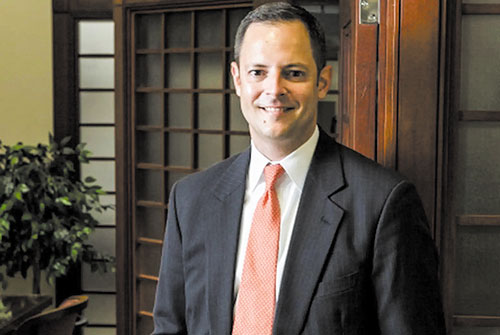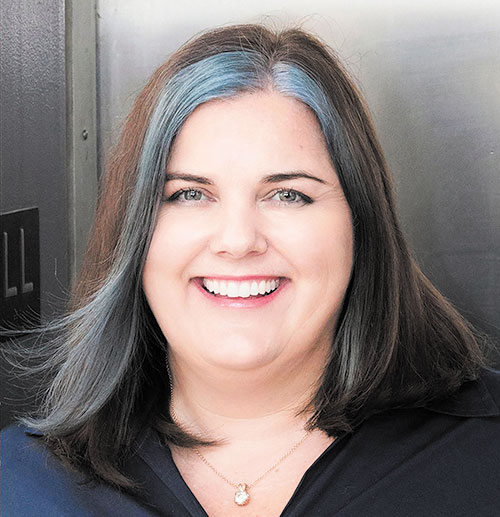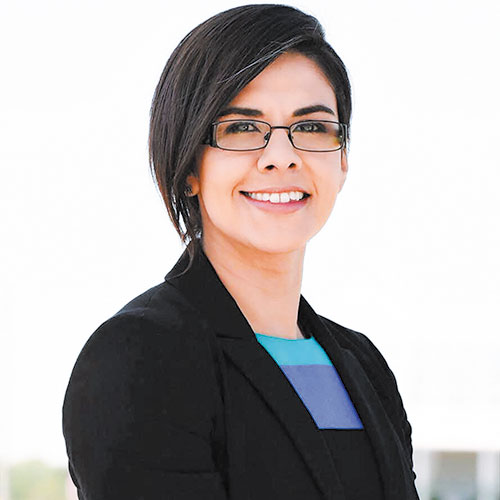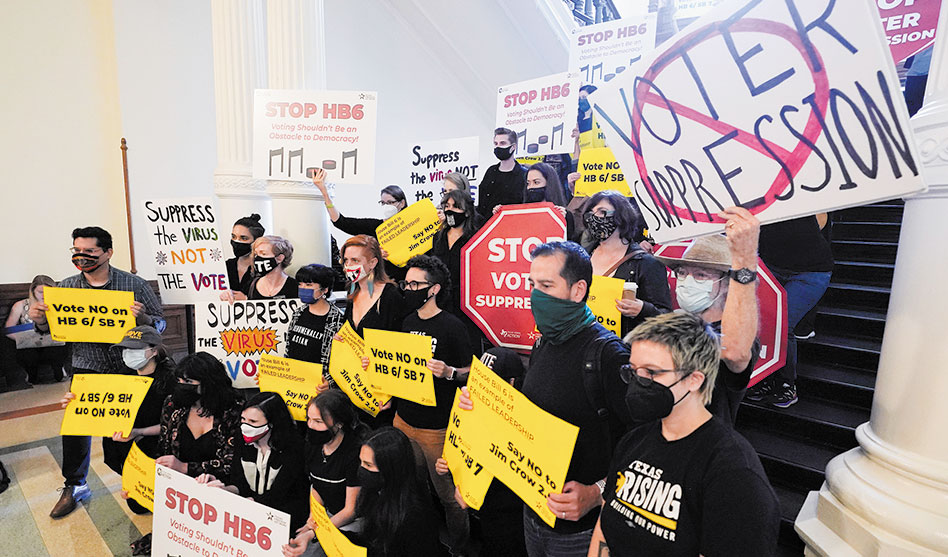A group opposing new voter legislation gather outside the House Chamber at the Texas Capitol in Austin on May 6. (Eric Gay/Associated Press)
A bill being rammed through the legislature has a number of provisions that are intended to suppress the vote of LBTQ and other minority voters
DAVID TAFFET | Senior Staff Writer
taffet@dallasvoice.com
State Rep. Jessica Gonzalez has been working overtime this session fighting off not only anti-transgender bills, but, as vice chair of the Committee on Elections, fighting off voter suppression bills, too.
Along with three other committee members, including Rep. Michelle Beckley, D-Carrollton, Gonzalez has written to U.S. Attorney General Merrick Garland, asking him to have the civil rights division of the Department of Justice “monitor the proceedings of the House Elections Committee and the Texas House for the remainder of the session” after committee Chair Briscoe Cain, R-Deer Park, on April 29 forced a vote on one such bill, Senate Bill 7, without advanced notice and without allowing time for public input.

State Rep. Rafael Anchia
In addition to what Gonzalez called a return to Jim Crow laws when she appeared on ABC’s national news this week, she questioned the way the bill was rammed through committee without comments from the public and without discussion of language used in the bill. Democrats on the committee received the language in the bill about 10 minutes before Cain called for a vote on it.
SB 7 had already passed the upper house of the Legislature. Gonzalez and other Democrats on the elections committee objected in writing to four provisions of the bill that became House Bill 6.
SB 7 would allow partisan poll watchers to have unfettered access to voters in the polling place. They’d be allowed to roam freely around polling places to intimidate voters.
It’s unclear what would happen if a voter complained about the poll watcher interfering with the right to cast a secret ballot. The election judge in the polling place could intervene. But many voters, presumably elderly, minority, disabled, LGBTQ and other groups targeted by this partisan legislation, could be intimidated and simply leave.
A second provision would prohibit “county governments from establishing methods and locations for voting that have proven to boost participation in working-class communities and communities of color,” according to the letter.
A highly successful example in Dallas County was making the American Airlines Center a mega-voting location. The arena is located in an area with a high concentration of Democratic voters and is located within Oak Lawn’s heavily LGBTQ 75219 zip code. Another mega center was opened at Potters House with a concentration of Black voters.
In the Senate version of the bill, a formula would be used to distribute voting machines and polling places based on previous election turnout. That would oversaturate white neighborhoods with polling locations and penalize poorer areas that historically have had lower turnout.
Third, curbside voting would become more difficult. New and onerous requirements for people who drive elderly or disabled voters to the polls would be created, including having to provide proof of ailment or disability. The driver could be penalized for failure to produce paperwork indicating the passenger’s disability and need to have a poll worker bring a voting machine to the car.

State Rep. Michelle Beckley,
During the pandemic, curbside voting vastly expanded, and those who preferred not to enter a voting location were given the opportunity to vote from their cars. The process was slow, but there were no reports of voter fraud as a result.
Finally, elections officials would be prevented from sending mail ballot applications to voters eligible to vote by mail.
The penalty would be state jail time.
Gonzalez charges that these changes to the House version of the bill were presented just minutes before the chair called for a vote on the legislation. “Unfortunately, this disregard for decorum and formal rules is all too common in the House Elections Committee,” Gonzalez wrote in her letter to the attorney general.
On ABC News, Gonzalez characterized the bill as “unnecessary legislation that is bad for Texas,” and said there was nothing in the bill that makes it easier or safer to vote.
She hasn’t received a response from the Justice Department yet but is working her Washington connections — Gonzalez worked in the Obama White House — to get some federal oversight. Because these voter restrictions are happening in other states as well, she believes the justice department has an interest in this legislation.
Beckley, who also signed the letter to the U.S. attorney general, said she was frustrated this session with the amount of time she spent defending trans kids and preventing voter suppression. As a result, she said, there was no time left for fixing the power grid, doing anything about the pandemic or talking about the number of kids lost to the education system since the shutdown.
And don’t get her started on Texas ranking number one in uninsured people during a health crisis, which keeps the state’s health insurance rates skyrocketing.

State Rep. Jessica Gonzalez
But those issues, she said, have been ignored. Instead, she’s had to deal with HB 6/SB 7, which are all about punishing Harris County Judge Lina Hidalgo, who tried to make it as easy as possible for voters in Houston and elsewhere in her county to vote. Each step of the way, Beckley said, Hidalgo checked with the Texas Secretary of State to make sure anything she did to expand access to voting was legal.
Hidalgo allowed 24-hour voting to make it easier for shift-workers to get to the polls — doctors, police, firefighters and, especially in the case of Houston, chemical and petroleum workers. As did Dallas County, she made drive-through voting more available during the pandemic.
Beckley said nothing in the bill makes it easier to register to vote: “No online registration,” she said. “All registration is done in pen and ink. And when they can’t read it, it gets thrown out.”
And yet, she said, after 22,000 hours of investigation into voter fraud in the last election, there hasn’t been a conviction in Texas. “Instead, they’re going with the Trump Big Lie,” Beckley said. “We’ll see where the dust settles.”
And then, Beckley said, the voter suppression law will go to court.
For now, the bill continues to be amended and will go to a conference committee.
Rep. Rafael Anchia, D-Dallas, pointed out wording in the bill used the term “purity of the ballot box.” When Anchia asked Cain if he knew that term came from the Jim Crow past, Cain said he didn’t know that, claiming that he took the wording from the Texas Constitution.
That wording was eventually removed from the bill. And wording about the poll watchers has also changed since Anchia shined a light on the Jim Crow connections in the bill.
But the wording of a final bill will be determined by the conference committee that will create one bill from the House and Senate versions. Conference committee is a mostly secretive process in the Texas Legislature. Gonzalez doesn’t know if she’ll even be part of that process, even though she’s vice chair of the committee that would have to pass the bill back to the floor of the Legislature for a final vote.


This is all a bunch of BS. Let’s be really clear here; there are really only two problems the democrats have with this bill:
-it requires a valid ID to vote; a point not even mentioned in the article because they want to pretend, and gaslight everyone into believing, that it’s all about intimidation.
-it eliminates blanketed mail-in voting.
That’s it.
The ID part is ridiculous. The Democrats claim needing an ID to vote is racist because…. why exactly? Minorities are too stupid to figure it out? They are too poor?
Here are a few things that require an ID:
driving a car
renting a car
renting an apartment
buying alcohol
buying tobacco
staying at a hotel
getting on a plane
applying for food stamps
applying for welfare
applying for unemployment
applying for medicaid
applying for social security
getting a job
adopting a pet
buying an “M” rated video game
picking up a prescription
selling something at a pawn shop
donating blood
The Democrats don’t seem to care about any of those things, including needing an ID to attend their own national convention. So let’s quit pretending here.
A valid ID would preclude ILLEGAL IMMIGRANTS from voting and THAT is the big issue here. Because without that, Democrats would be out of office in a heartbeat.
They dangle the carrot of “free stuff” for illegals in the hope that the illegals will continue to vote for them. They promise a “better, more equitable life” but they have no intention of following through. It’s like they’re dangling a rope from a 20 story building, offering a way to the top – but they’ll only ever pull you up to the 5th floor – no where near the top, but too high up to let go. They’ve got you right where they want you. DEPENDENT.
And again, anyone can vote by mail if they have a valid reason – it’s called an “ABSENTEE BALLOT”. But democrats don’t like those either because, again, they require that you prove who you are. The mass mailing of unsolicited mail-in ballots is just a recipe for fraud – and MANY democrats are on record saying so.